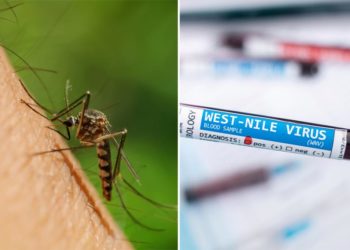Kseniia Petrova, the Russian scientist who spent four months in detention after failing to declare scientific samples she was carrying into the country, was freed on bail from federal custody on Thursday by a magistrate judge in Boston.
Ms. Petrova, 31, left the John Joseph Moakley United States Courthouse surrounded by colleagues from the Harvard laboratory where she has worked since 2023, investigating the earliest stages of cell division.
Ms. Petrova’s release is a victory, but a temporary one. She is still facing a two-pronged prosecution: The Trump administration began deportation proceedings against her in February, and around three months later, after she challenged the move in court, filed criminal smuggling charges against her.
Lawyers for the government have said they intend to deport Ms. Petrova to Russia, a country she fled for political reasons in 2022. She has said that if she returns, she fears arrest or even death because of her activism.
In a detention hearing on Thursday, Nadine Pellegrini, an assistant U.S. attorney, said the government had agreed with Ms. Petrova’s defense on terms of release, allowing her to return home to her Boston apartment while awaiting her next court date.
Ms. Petrova, who was dressed in an orange jumpsuit for the hearing, emerged from custody in a T-shirt that read “Hakuna matata,” and embraced Marc Kirschner, the scientist who heads up her laboratory at Harvard Medical School.
“It feels amazing,” said Cora Anderson, who works alongside Ms. Petrova at Harvard Medical School. “It’s been really hard without her. It’s really nice to know she will at least be at home.”
Ms. Petrova’s case stands out among the cluster of high-profile deportation cases involving noncitizen academics because it centers on a customs violation, which is not typically grounds for revoking a visa.
Before returning to Boston from a vacation in France, Ms. Petrova agreed to carry back samples of frog embryos from an affiliate laboratory in Paris, something her supervisor at Harvard Medical School had requested.
Ms. Petrova has acknowledged that she failed to declare the samples, but her lawyer has argued that this would ordinarily be treated as a minor infraction, punishable with a fine. Instead, the customs official canceled Ms. Petrova’s J-1 visa on the spot and initiated deportation proceedings.
At a bail hearing last month, Christina Reiss, the chief judge of the U.S. District Court in Vermont, expressed skepticism about the immigration case, remarking that, based on the evidence she had seen, “there does not seem to be either a factual or legal basis for the immigration officer’s actions” in stripping Ms. Petrova of her visa.
She also said she had concluded that the scientific samples Ms. Petrova carried into the country were “wholly nonhazardous, nontoxic, nonliving and posted a threat to no one.”
However, the criminal charges do not hinge on Ms. Petrova’s immigration status, but instead on whether she knowingly deceived customs officers in order to bring the samples into the country.
The smuggling charge, generally brought against business operations involving the illegal import of exotic animals or endangered species, carries a maximum penalty of up to 20 years in prison, or a fine of up to $250,000.
The criminal case against Ms. Petrova relies heavily on a number of text message exchanges that a customs officer found on her phone. In the exchanges, two colleagues from her laboratory asked if she had the proper documentation to carry the samples through customs.
“What is your plan for getting through customs with samples?” one of them asked, according to court documents.
Ms. Petrova replied, “No plan yet. I won’t be able to swallow them.”
The environment for scientists has changed quickly in the months since Ms. Petrova was detained, said Rachael Jonas-Closs, a research assistant at the Kirschner laboratory.
“It’s shaken people a lot, mostly on an emotional level but also on a fear-based level,” she said. “What a small infraction can lead to such a terrible outcome.”
Maya Shwayder contributed reporting.
Ellen Barry is a reporter covering mental health for The Times.
The post Russian Scientist Released After Four Months in Federal Custody appeared first on New York Times.




